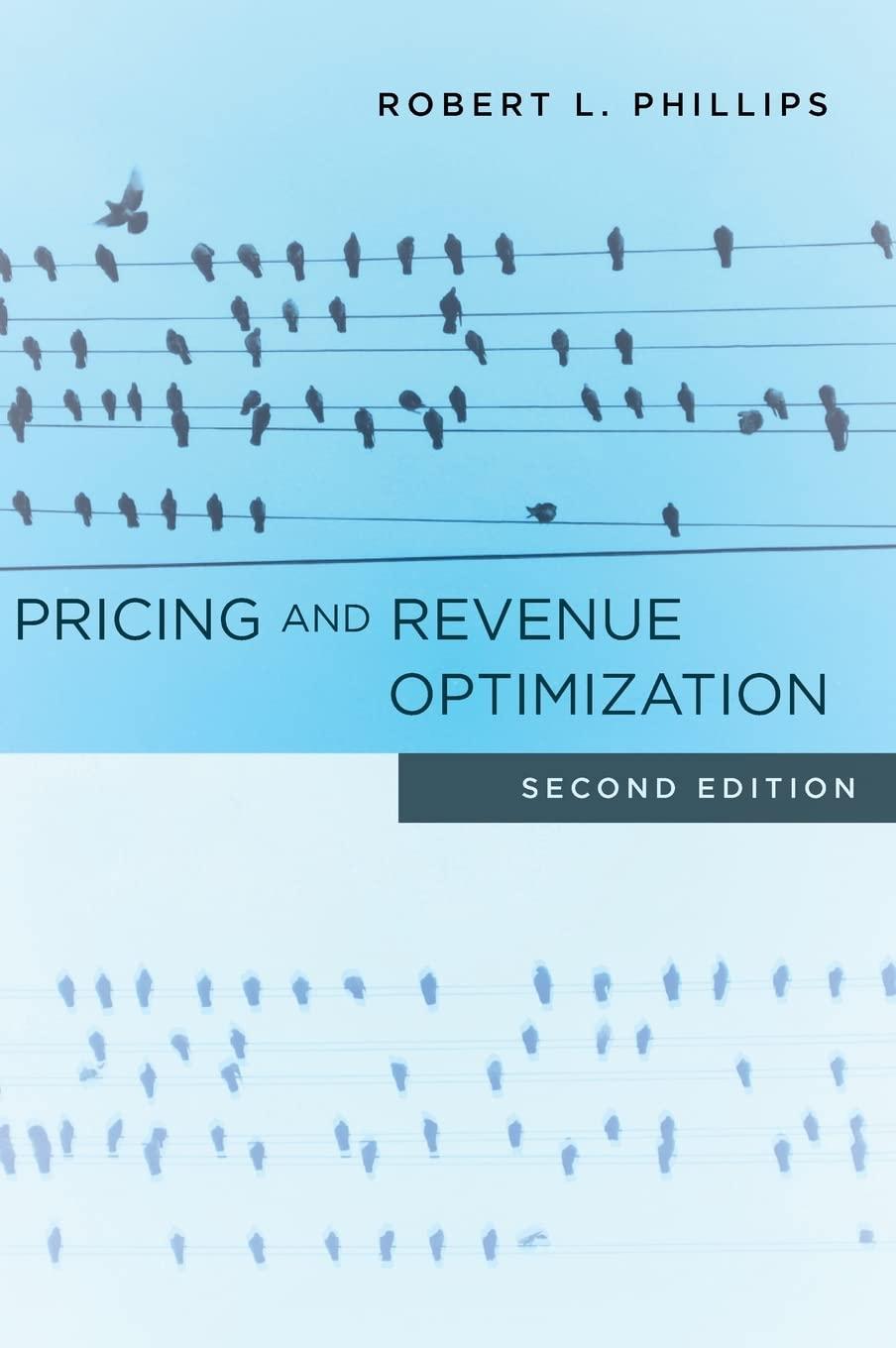Arbitrage. A supplier is selling hammers in two cities, Pleasantville and Happy Valley. It costs him $5.00
Question:
Arbitrage. A supplier is selling hammers in two cities, Pleasantville and Happy Valley. It costs him $5.00 per hammer delivered in each city. Let p1 be the price of hammers in Pleasantville and p2 be the price of hammers in Happy Valley. The price-response curves in each city are Pleasantville: d1(p1) = 10,000 – 800p1 Happy Valley: d2(p2) = 8,000 – 500p2
a. Assuming the supplier can charge any prices he likes, what prices should he charge for hammers in Pleasantville and Happy Valley to maximize total contribution?
What are the corresponding demands and total contributions?
b. An enterprising arbitrageur discovers a way to transport hammers from Pleasantville to Happy Valley for $0.50 each. He begins buying hammers in Pleasantville and shipping them to Happy Valley to sell. Assuming the supplier does not change his prices from those given in part
a, what will be the optimal price for the arbitrageur to sell hammers in Happy Valley? How many will he sell? What will his total contribution be? (Assume that Happy Valley customers will buy hammers from the cheapest vendor.) What will happen to the total sales and contribution for the supplier? (Remember that he is now selling to the arbitrageur too.)
c. The supplier decides to eliminate the arbitrage opportunity by ensuring that his selling price in Happy Valley is no more than $0.50 above the selling price in Pleasantville (and vice versa). What is his new selling price in each city? What are his corresponding sales and total contribution?
d. From among the Pleasantville customers, the Happy Valley customers, and the seller, who wins and who loses from the threat of arbitrage?
Step by Step Answer:







